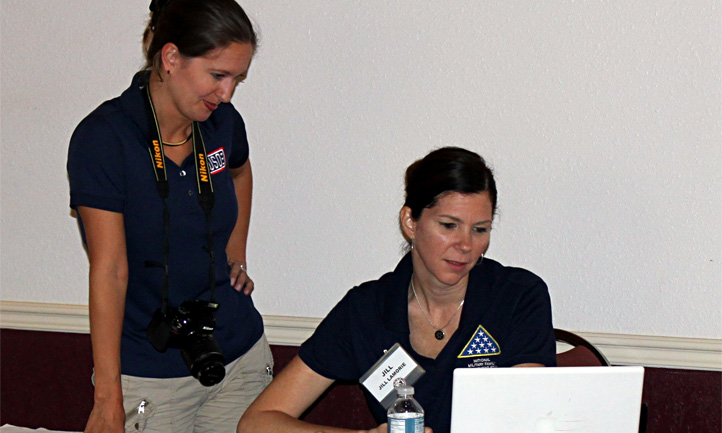National Bereavement Study: A Call to Action
Author: TAPS
One of the recurring themes of grief is the feeling of isolation, the sensation that we are alone in the world and that no one understands what we are going through. At some point many of us find a way to “give sorrow words” as William Shakespeare wrote more than 400 years ago. We find our voice and want to be assured that someone is listening. The National Military Family Bereavement Study (NMFBS), in partnership with TAPS and other organizations, gives surviving military families just that, the opportunity be heard in a nationwide research venue.

The NMFBS is the first project in our nation’s history to study the impact of a U.S. service member death on the family. This includes families of origin (parents and siblings) and families of procreation (spouses and children), regardless of the cause of death of their loved one. Now in its second year, the study is actively seeking participants in all three phases of the research.
More than 500 survivors have participated in the study in the past four months, giving a number of reasons for why they wanted to work with the research study. Andy Weiss summed it up when he said, “I participated to honor and remember my son, Danny. It is a small way to try to help others and help ourselves recover a sense of balance in our own devastation.”
The first step (Phase 1) in participating in this landmark study is to complete the bereavement questionnaire. The questionnaire covers topics such as your health, the service member’s death, and your current feelings and concerns. It reflects the perspective of the individual who is grieving. In taking the questionnaire, individuals are asked if they would like to participate in the second phase of the study, which is the family interview.
In Phase 2 additional questionnaires are given on the subject of how families reacted to, and coped with, the death. Family members are interviewed separately, and the goal is to find out how the death affects the family over time by conducting three interviews over two years.
Surviving spouse Kristen Santos-Silva said, “My son and I participated as a way for our voices to be heard. We could truly speak openly and honestly, and communicate feelings that we tend not to allow to surface daily or want to deluge someone else with. Participating in this study allows one to express feelings.”
Phase 3 of the study involves regional focus groups based on relationship type. Focus groups help the study assess common themes among specific relationship types (parents, siblings, spouses, children). The group session meets at a location convenient to survivors.
Information collected by the study will help the military know how to provide the best support to survivors. It will also affect the development of practices that will best help the bereaved find clues to healing and ways to repair their shattered lives.
As bereaved mom Lisa Jo Adkison wrote, “I believe it helped me to feel a little more empowered (a small sense of controlling part of my grief journey). I am proud (patriotically) to be participating in something so important.”
Who can participate in this study?
Eligible participants include parents, step-parents, adoptive and custodial parents, siblings, step-siblings, spouses, ex-spouses, adult partners, children, and step-children whose service member has died (whether by accident, combat, illness, homicide, or suicide) in active duty status in the United States military (Active, Guard, and Reserve components of the Army, Navy, Air Force, and Marines) on or after September 11, 2001.
For further information, visit Military Survivor Study website or contact Dr. Jill Harrington-LaMorie, DSW, LCSW, Senior Field Researcher, NMFBS, at jill.lamorie.ctr@usuhs.edu or (301) 944-4976.
